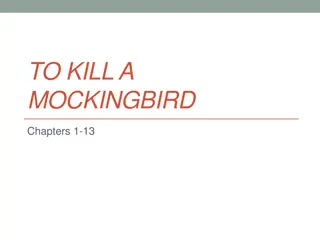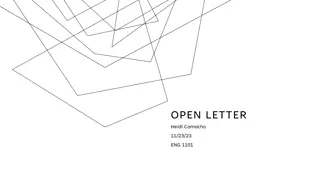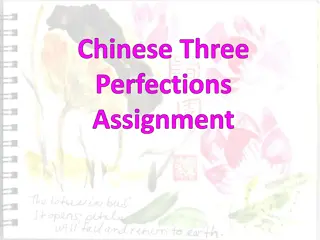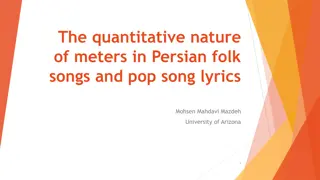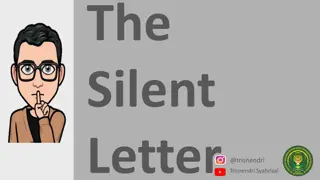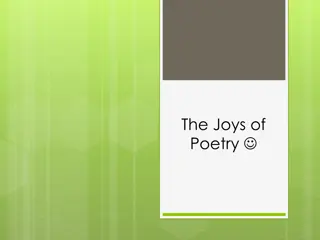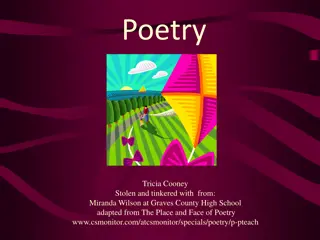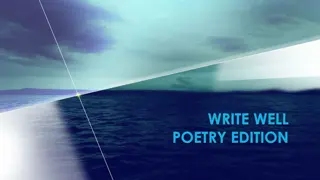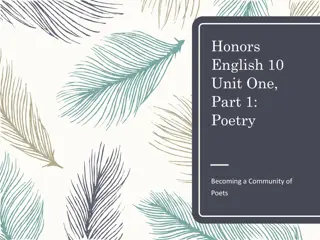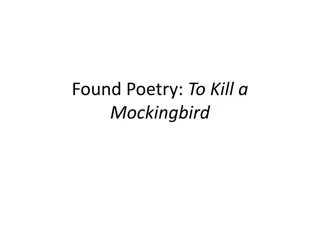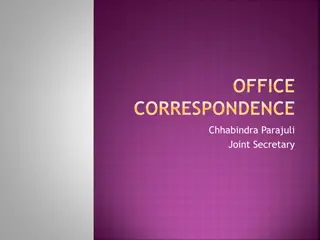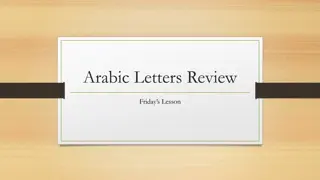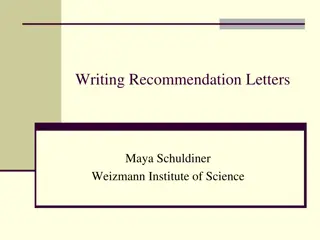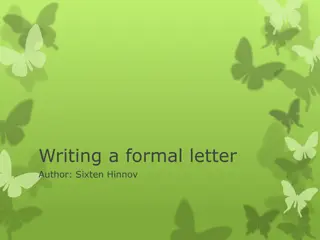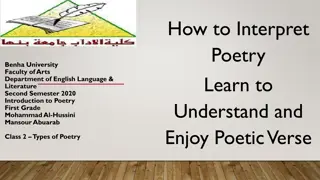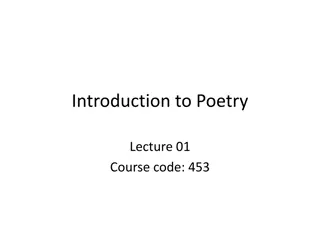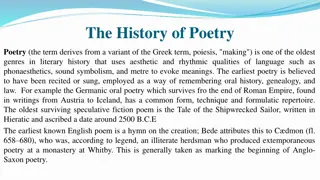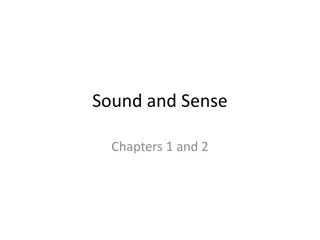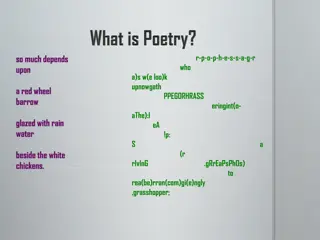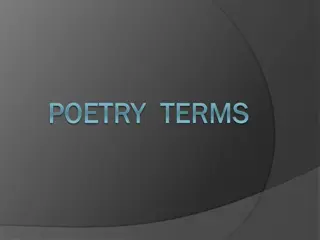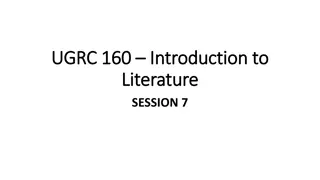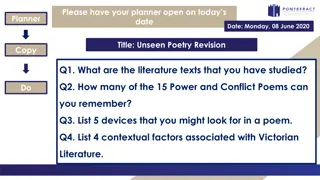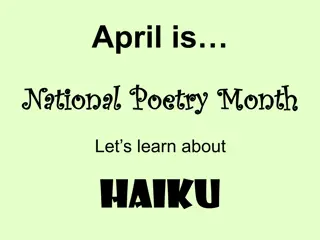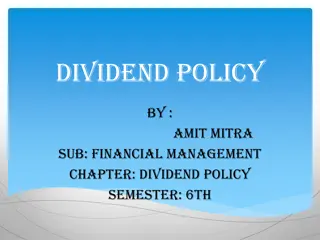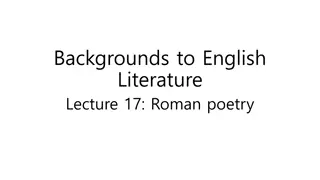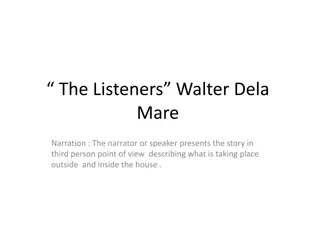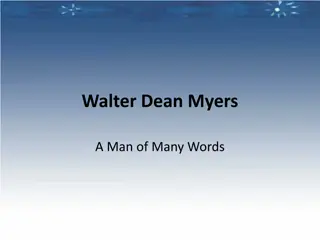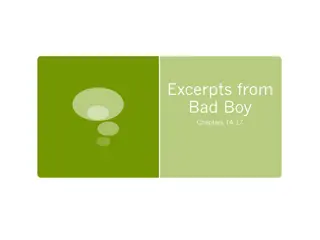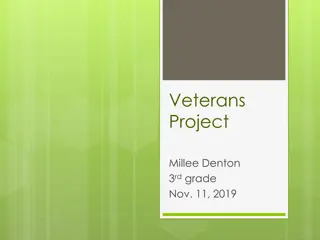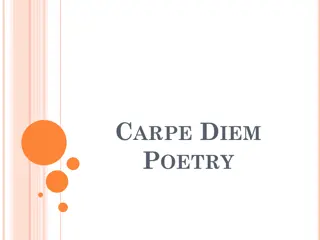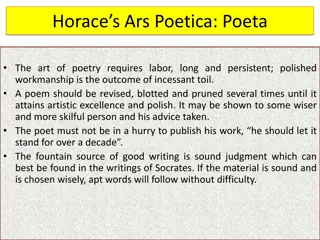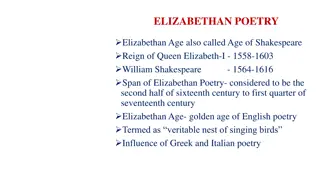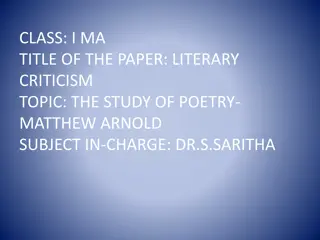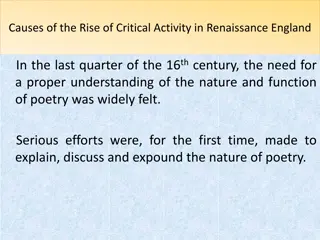Unveiling the World of Walter Scott Through Letters and Poetry
Dive into the world of renowned writer Walter Scott through engaging activities such as exploring his life, designing your own crest, sharing favorite poems, writing letters, and delving into the essence of poetry inspired by his works.
Download Presentation

Please find below an Image/Link to download the presentation.
The content on the website is provided AS IS for your information and personal use only. It may not be sold, licensed, or shared on other websites without obtaining consent from the author. Download presentation by click this link. If you encounter any issues during the download, it is possible that the publisher has removed the file from their server.
E N D
Presentation Transcript
Letter Writing with Walter Scott
Who was Walter Scott? Born in 1771 Loved dogs and cats Famous writer Lived in the Scottish Borders Wrote novels, poems, and other texts
Your Crest Crests tell us important things about a person or group of people. What important things would you put on your own crest? Design your own crest.
Do you have a favourite poem? On hiding in a cupboard About a flower Though tired of standing all this time I dare na stir a leg; Though wishing sair to stretch my arms I canna move a peg. The violet, in her green-wood bower, Where birchen boughs with hazels mingle, May boast itself the fairest flower In glen, or copse, or forest dingle. [dingle = small wooded valley] About a ghost and a human riding a horse A comment on lies: Tramp! Tramp! Along the land they rode; Splash! Splash! Along the sea; The stead is wight, the spur is bright. The flashing pebbles flee. Oh what a tangled web we weave, When first we practice to deceive!
Time to write Take a piece of paper and write a letter to your friend about the poem you have chosen. Answer these questions: a. What is the poem about? b.Why do you like the poem? c. What would you ask the poet if you could? Make sure you sign your name at the end.
Fold your letter
Read your classmates letter and poem Do you like their poem? Is it similar or different to your poem? Do you like it? What would you like to ask the poet?
Walter Scotts letter part 1 The naturalists tell us that if you destroy the web which the spider has just made, the insect must spend many days in inactivity until he has assembled within his person the materials necessary to weave another.
Walter Scotts letter part 2 Now after writing a work of imagination one feels [in] nearly the same exhausted state as the spider. I believe no man now alive writes more rapidly than I do (no great recommendation), but I never think of making verses till I have sufficient stock of poetical ideas to supply them.
Walter Scotts letter part 3 Israelites in Egypt = this refers to a biblical story in which the enslaved Israelites had to make bricks without the material they needed. I would as soon join the Israelites in Egypt in their heavy task of making bricks without clay.
Walter Scotts letter part 4 Besides I know as a small farmer that good husbandry consists in not taking the same crop too frequently from the same soil and as turnips come after wheat according to the best rules of agriculture I take it that an edition of Swift will do well after such a scourging crop as Marmion. Husbandry = looking after a small farm. Scott had just finished writing a poem called Marmion and is now going to work on a non-fiction book about a writer called Swift.
Questions on Scotts letter The naturalists tell us that if you destroy the web which the spider has just made, the insect must spend many days in inactivity until he has assembled within his person the materials necessary to weave another. Now after writing a work of imagination one feels [in] nearly the same exhausted state as the spider. I believe no man now alive writes more rapidly than I do (no great recommendation), but I never think of making verses till I have sufficient stock of poetical ideas to supply them. I would as soon join the Israelites in Egypt in their heavy task of making bricks without clay. Besides I know as a small farmer that good husbandry consists in not taking the same crop too frequently from the same soil and as turnips come after wheat according to the best rules of agriculture I take it that an edition of Swift will do well after such a scourging crop as Marmion. 1. What animal does Scott compare himself to and why? 2. Do you think Scott is a careful writer? 3. Why does Scott say he will not write another poem right now? 4. Explain the comparison between writing and husbandry. 5. Would you like to receive a letter from Scott? Why?



